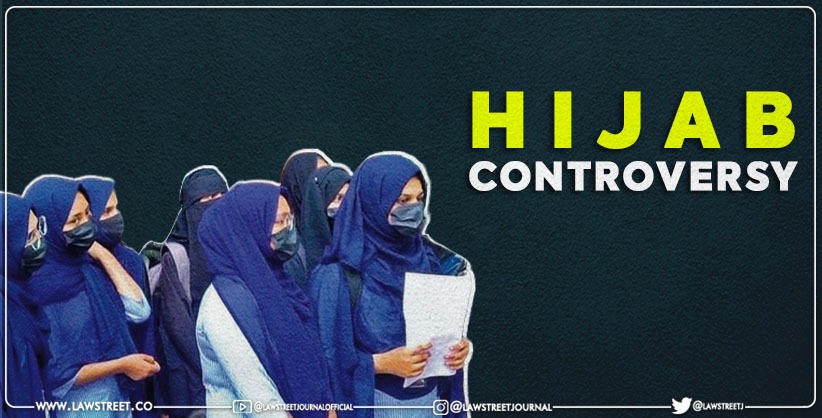NEW DELHI: The Supreme Court was told on Thursday that every religious practice may not be essential, but that does not mean the state can keep restricting it as long as it does not fall foul of public order, morality, and health.
Senior advocate Devadatt Kamath submitted before a bench of Justices Hemant Gupta and Sudhanshu Dhulia that Article 25, which guaranteed freedom of religion under the Constitution protected innocent bonafide practice like wearing a hijab but not an orange shawl, "a belligerent display of religion".
The bench, however, asked Kamath that wearing a hijab in street may not offend anyone, however, wearing it in a school might raise a question as to what kind of public order school would want to maintain.
Kamath said one can wear headgear, kara, as part of his religious belief, it may not be a core religious practice, but as long as it does not affect public order, health or morality, it can be allowed.
"Wearing a namam, yes, wearing a hijab, yes, wearing an orange shawl is not a bona fide practice. The argument of the state is that if I wear hijab, other students will wear orange shawl. Wearing an orange shawl is not a genuine religious belief. It is a belligerent display of religion, that if you wear this, I will wear this, he said.
The arguments were made on behalf of Muslim students during the hearing on third day before the apex court against Karnataka High Court's order of March 15 which upheld the ban on hijab in Karnataka's Pre University Colleges.
He once again stressed the need of referring the matter to the Constitution bench, saying there are issues which the court may have to consider under Article 145(3) of the Constitution.
"There is no direct judgment. There are issues like what is religion, what is conscience, difference between freedom of religion and conscience," he said.
Kamath questioned the validity of the High Court's decision, saying it was "totally wrong" for it to state that freedom of conscience is distinct with religion and quoted Dr B R Ambedkar in Constituent Assembly debates.
"I have placed the entire Constituent Assembly Debates. There is not a single word by Ambedkar on distinction between conscience and religion. He may have said elsewhere but not in Constituent Assembly debates. Hindu religion provides for 16 forms of puja. Today, somebody lights a diya, is it freedom of religion or conscience? People carry photos of Rama or Krishna. I do. It gives a sense of confidence. Is it religion or conscience? It is not something ordained in the scriptures," he said.
He also maintained the High Court has gone into a dangerous territory of separating conscience from religion.
Kamath submitted a person may follow some diktats of religion out of belief and some other diktats out of conscience.
He also claimed the High Court fell into the Constitutional error of first going to decide if Hijab is an essential practice and, without going into question if government order issued by the Karnataka government on February 5 can be seen as a restriction.
He also pointed out there is a divergence of views between Karnataka, Kerala and Madras High Court judgements on whether hijab is an essential religious practice and the top court has to finally settle the issue.







